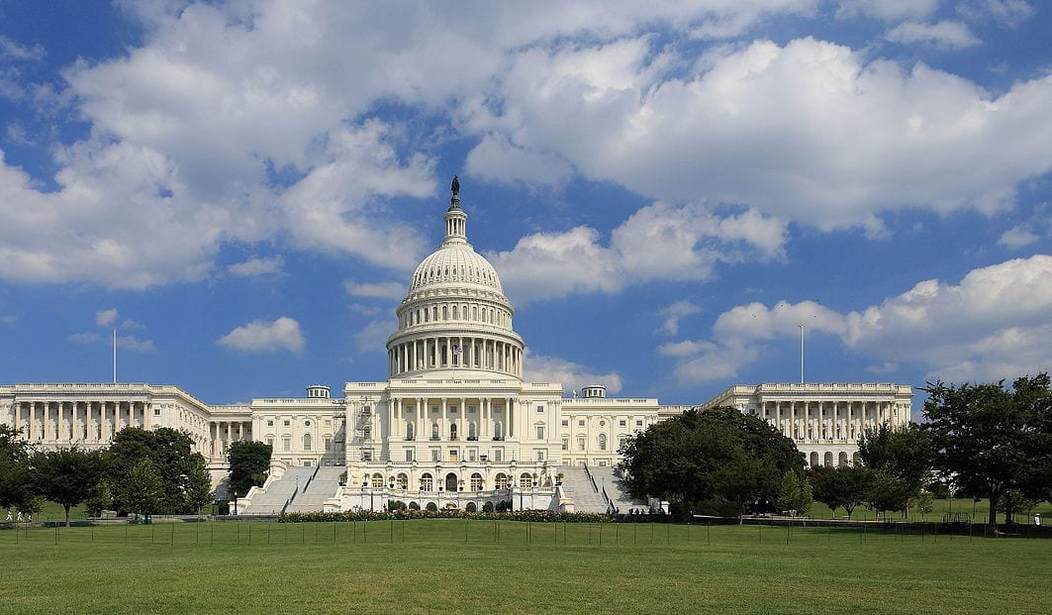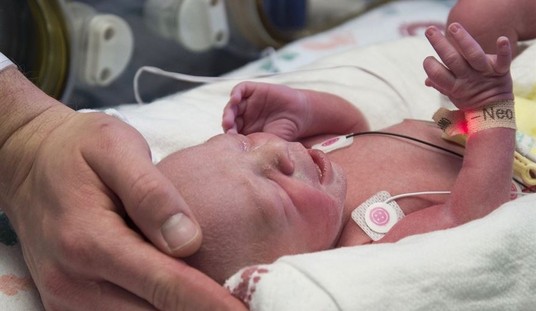In the State of the Union tonight, President Donald Trump will tell us how he thinks the country is doing, but Americans have their own thoughts too. Here’s their take on the key issues facing the nation as reported by Pew Research.
The economy is the brightest spot for the Trump administration, as Americans are more positive about the nation’s economic conditions than they have been in recent years, which is why we’ll be hearing a lot about jobs and economic growth tonight.
An October survey found 41% of Americans rating economic conditions in the country as “excellent” or “good,” near the highest point in a decade. The public’s improving economic outlook is reflected in its policy agenda for Trump and Congress in the coming year. …
The public’s view of local job availability has also improved substantially in recent years. In October, half of Americans said there are plenty of jobs available in their communities – the highest assessment in Pew Research Center surveys dating to 2001.
When it comes to taxes and the recent tax law, Americans have mixed feelings.
About as many say the law will have a mostly positive effect on them and their families (29%) as say its effect will be mostly negative (27%). A third of U.S. adults expect the law to not have much personal impact. Views also are split on how the law will affect the country as a whole, with 35% saying it will positively impact the nation and 40% anticipating a mostly negative effect. Just 15% say the law won’t have much effect on the country. These views vary by party and income. Those with higher incomes are more likely to say they will personally benefit from the new tax law.
Pew found that terrorism is a top issue for 73 percent of Americans, and their views have “sharply improved” under the Trump administration.
Last fall, a majority of Americans (55%) said for the first time that the campaign against Islamic militants in Iraq and Syria is going well, up from just 31% a year earlier, with Republicans and Republican-leaning independents driving much of the overall increase. The public approves of the campaign overall (69%), but Americans have mixed views on whether it has made much difference on the chances of a terrorist attack in the United States.
The country is equally divided when it comes to foreign policy, with 47 percent of Americans saying the U.S. should “be active in world affairs” and the same percentage saying the U.S. needs to “pay less attention to problems overseas and concentrate on problems here at home.” The number of Americans who favor U.S. involvement overseas has increased from 35 percent in 2014.
Immigration was a hot topic during the presidential campaign, and it continues to be one, with Americans becoming more positive in their views of immigrants.
Most Americans say immigrants strengthen the country with their hard work and talents (65%), rather than say that immigrants burden the country by taking jobs and other resources.
The top immigration issues for Americans are the status of immigrants who were brought to the country illegally as children and the construction of a border wall.
Nearly three-quarters of U.S. adults (74%) favor granting permanent legal status to immigrants brought here illegally as children, and just 37% favor substantially expanding the wall along the U.S.-Mexico border.
The other big issue in the presidential campaign was Obamacare. Pew has found that despite Republican efforts to repeal the health care law, most Americans think it has had a more positive than negative effect on the nation: 44 percent versus 35 percent.
The share of Americans saying the law has had a positive effect on the country has increased 20 percentage points since 2013.
69% of Americans say the federal government should play a major role in ensuring access to health care. Yet only 36% say the government is doing a very or somewhat good job at ensuring health care access, down from 56% in 2015.
While Trump is lauded by conservatives and libertarians for his success at chipping away at regulation of businesses, most Americans are in favor of regulation (50 percent) because they think it “is necessary to protect the public interest.” A total of 45 percent think regulation “does more harm than good.”
Democratic support for business regulation is now higher than it was during much of the 1990s and 2000s. As of July 2017, two-thirds of Democrats (66%) say government regulation is necessary to protect the public interest, while just 31% of Republicans say the same. When it comes to government’s role on specific issues, such as ensuring safe food and medicine, large majorities say the government should play a “major role.”
One of the most divisive issues facing the country is climate change and the environment.
Nearly seven-in-ten Democrats (68%) say dealing with climate change should be a top policy priority, 50 percentage points higher than the share of Republicans who say so (18%). And while 81% of Democrats say protecting the environment should be a top priority, just 37% of Republicans say the same.
Democrats also support environmental laws and regulations more than Republicans do, with 77 percent of Democrats wanting tougher laws and 58 percent of Republicans opposing them because “such regulations cost too many jobs and hurt the economy.”
Finally, most Americans (60%) think race relations are worse because of Trump’s election. In 2016, according to Rasmussen Reports, the exact same percentage said race relations had gotten worse since Obama’s election.
Just after Trump’s election in 2016, nearly half of Republican voters (48%) said they expected his election to lead to improved race relations. Roughly a year later, just 17% of Republicans say it has. Meanwhile, about eight-in-ten Democratic voters (83%) say Trump’s election has made race relations worse, little different than the share who expected his election to lead to worse race relations in November 2016 (81%).
Overall, only 38 percent of Americans think race relations are “generally good,” while 56 percent say they are “generally bad.”









Join the conversation as a VIP Member